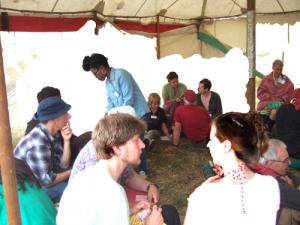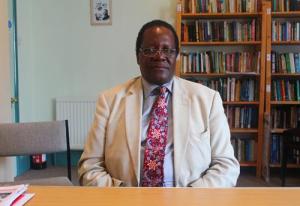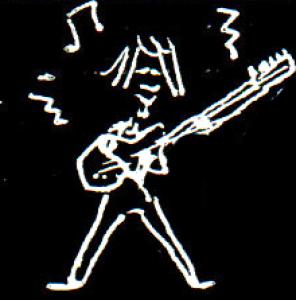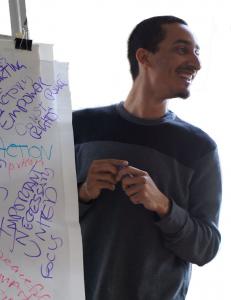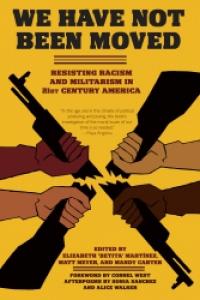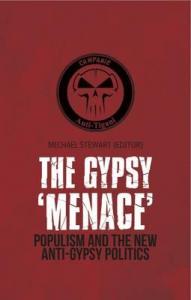I look forward to receiving and reading my copy of Peace News. It is always interesting, often challenging and non-parochial, so you do indeed produce something well worth having.
However, the last few copies had me really puzzled with the phrase ‘people of colour’. What do you mean? The peace camp report makes this somewhat clearer as do the letters and your replies. While understanding where you are coming from with this, I find it clumsy, precious and offensive.…
Race
This year’s fifth Peace News Summer Camp was a satisfying, at times electrifying, five-day experience, bathed yet again in good weather and good humour.
The camp broke new ground in a number of ways. We moved to a new venue (in Diss, Norfolk); we invited international speakers for the first time (flying them in from Colombia and Egypt); we had an almost entirely new organising group, composed entirely of people of colour; and our presenters were mostly people of colour for the first…
When I gave birth to my child, there he was, he was a boy! So different from me. If he had been a girl, I would have looked ahead at his childhood through the template of my own. I remember thinking: ‘Oh no, I don’t like football, I’ll need to get to grips with boys’ interests and needs’. I nevertheless gave him my dolls’ house furniture and found that he was his own person, didn’t like football anyway, and we did pretty well on gender, power and politics over the next 18 years.
But…
If a newspaper came through my letterbox proudly announcing that it was produced ‘By Whites Only’, I would denounce it as racist filth, set it on fire and encourage my friends to do the same. How, then, am I to react when the latest issue of Peace News proclaims it is created ‘entirely by people of colour’ ?
My initial reaction to your boast was one of abject horror. It was racist. Is the implication that a coloured-only creative team is better than a white-only or mixed race one? Of…
Your triumphant heading, ‘an issue created entirely by people of colour’, suggests that people of colour (other than pink) are a special interest group. It may be said to imply, that everyone knows that pink people are superior to brown people, but nobody says so for fear of causing offence.
It is illogical and unpleasant, to segregate journal contributions according to the colour of the authors’ skins. You should be ashamed of yourselves.
The struggle in America is not what it appears to be to most white people; nor is it comparable or similar in nature to the fight against apartheid. It is a curious struggle that is being waged both in the area of public amenities and in the Negro soul itself. The struggle for civil rights – which is also, in the main, the subject of Mr Lomax’s book – is moreover perplexing because of its diverse ramifications. While speaking to American Negros one soon gains the impression that the growing…
Millius Palayiwa, director of Fellowship of Reconciliation
Photo: Jordana Jarrett
The current director of England’s Fellowship of Reconciliation (FoR) was born in what was then Southern Rhodesia, now Zimbabwe, the middle child of parents who sacrificed for their children’s prosperity. For 40 years, his father worked as a ‘kitchen-boy’ for a white man, making only £8.10 a month. His father agreed to work without pay if the man would pay for all seven children to attend primary…
My father was a Gurkha and we lived in a British army camp in East Nepal where all the Nepalis lived on one side of the camp and all the British on the other. My father, a commissioned officer was given housing on the British side which made things kind of weird for me and my sister.
I would swim, ride horses, and attend the whites-only small, makeshift elementary school. At sleep-overs, I found myself wanting to eat the colonel’s daughter’s strawberry-flavoured imported Punch and…
I want to give a warning shot to anti-oppression trainers and activists. My bottom line is this: we need to stop applying theory onto people’s experiences, wielding it like a weapon to describe what we believe whether we actually see it in a room or not. It’s not smart organising, creates intense backlash, and shrinks – not grows – our movements.
An organiser recently shared with me an example of what I’m talking about.
He was working in a union that represents workers at a…
Taking its cue from Martin Luther King’s famous 1967 speech denouncing the war in Vietnam, We Have Not Been Moved focuses on the resistance to both racism and militarism in the United States.
The three editors — all experienced activists — have collated 90 contributions looking at the connections and cleavages between the two issues, including the over-representation of ethnic minorities fighting in the armed forces, government money funding aggressive wars overseas rather than…
Written in response to an international rising tide of anti-Roma racism, this collection of articles analyses the shift towards the politics of the far Right in Europe over the past six or seven years. A timely contribution to the much-neglected study of this oppression, it ranges from detailed case studies of the effects of state policy, to the examination of how the discourse of neo-Nazism divides communities.
Europe’s largest minority, with an estimated population of 10 million,…
On 21 March, Occupy activists joined thousands of others in Union Square Park, New York, to protest at the shooting dead of unarmed 17-year old Trayvon Martin.
The young African-American was killed by a mixed-race Hispanic ‘neighbourhood watch’ coordinator on 26 February. George Zimmerman followed Trayvon because he looked ‘suspicious’ (Trayvon was wearing a hoodie).
Police…
As I write, we are on the eve of a last-ditch high court judgement on the long road to eviction at Dale Farm. At a time of great tension, outside activists like myself are deeply committed to resisting the eviction, yet in the media and in parts of the wider Gypsy and Traveller community, divisions have opened between direct activists and those pursuing legal approaches to preventing the eviction.
When I first visited Dale Farm, I asked myself whether activist visitors’ efforts to…
I suppose one of the things is that I don't see myself as “black”. I don't give myself a label. I'm just trying to stay alive, and do the things that can make that happen.
I am surprised and a bit disappointed that there are not more black people in the activist circles I move in. I'm mostly into permaculture and other things that grab my interest, like planting trees or getting involved in cooperatives or car- bon reduction.
I'm surprised and I don't know why there aren't…
Though a disproportionately white affair, the peace movement is a close relative of the anti-fascist, anti-racist and anti-apartheid struggles that form a key strand in this wonderful selection from the Getty Images photo archive. As Paul Gilroy notes in the thought-provoking essay, while this is “not a book for black people only”, the history it marks out is, even now, one which “those who are complacent, powerful and indifferent to the suffering of Britain's minorities find easy to…


